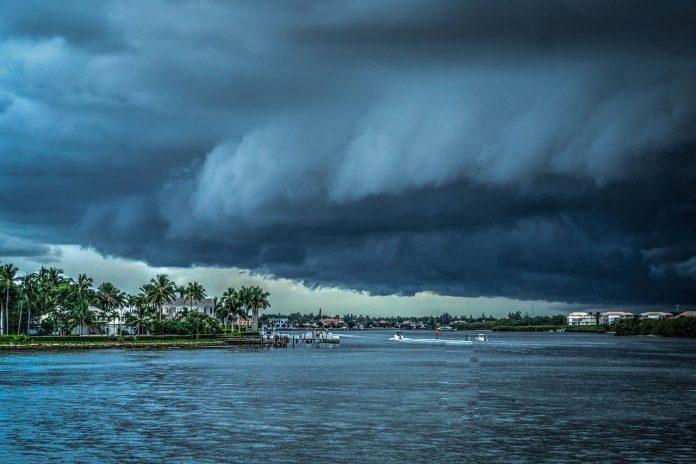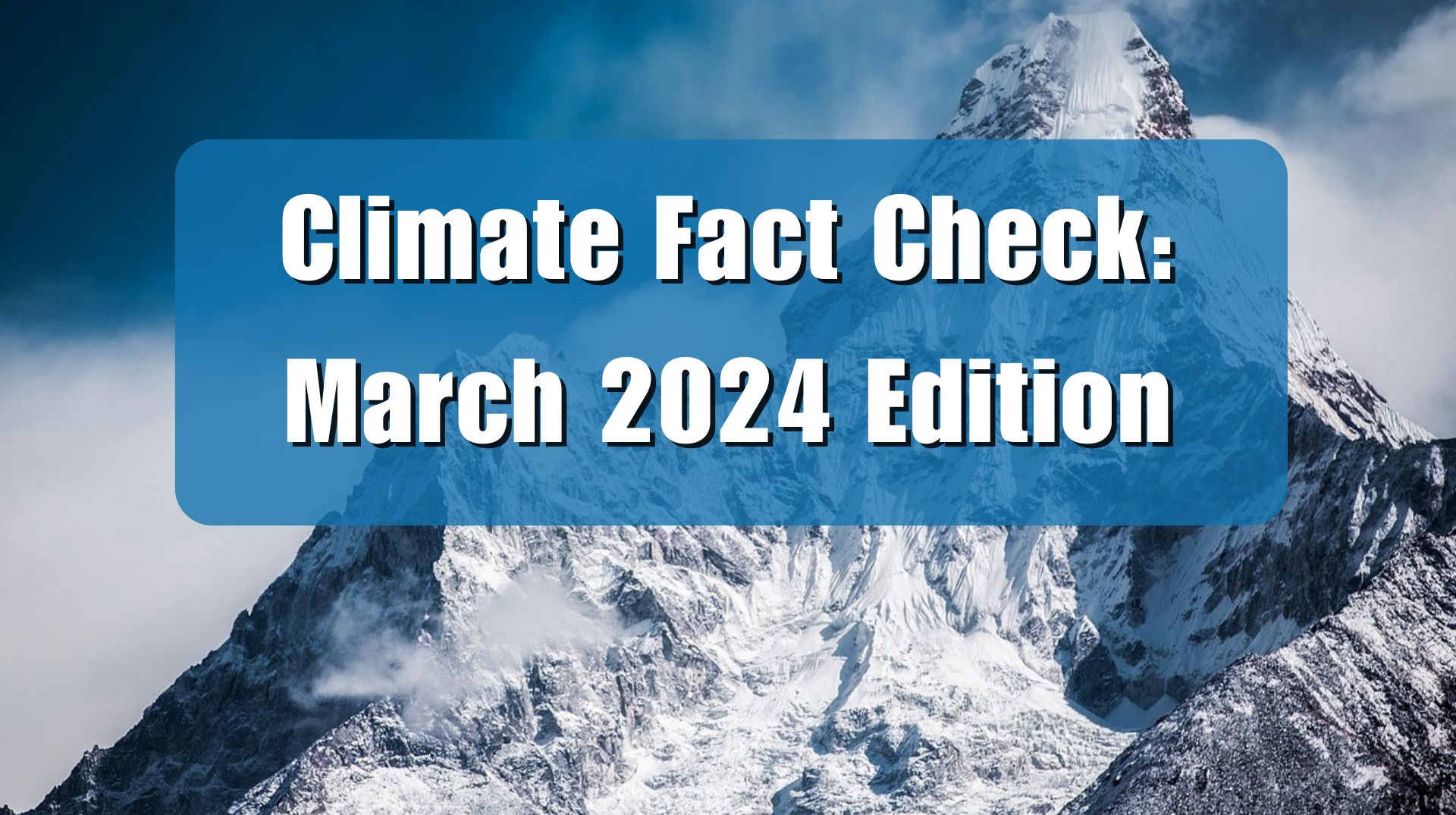A CBS News Philidelphia segment on hurricanes claims that climate change will cause increase in hurricanes making landfall on the U.S. Atlantic and Gulf Coasts. This claim is unsubstantiated and undermined by the available evidence. Rather than citing data or the science provided by the U.N. Intergovernmental Panel on Climate Change, CBS anchor David Schechter cites model projections for his claims. The past few decades of warming have yielded no increase in hurricane landfalls, quite the opposite.
Aside from claiming climate change will make landfalling hurricanes more frequent on the Atlantic and Gulf coasts, Schechter also claims that scientists are “certain” that hurricanes are getting stronger.
Warming ocean temperatures are pointed to as the main cause of alleged stronger hurricanes, but sea temperatures are only one factor in driving hurricane formation and strength. Another major factor is wind shear. Many hurricane researchers predict that global warming will likely increase wind shear, which will inhibit the formation of hurricanes and cause them to dissipate or become disorganized faster, despite an increase in water temperature.
Despite a slow warming over the past few decades, data refutes assertions that hurricanes have become stronger than they were in the past. In fact, evidence suggests the opposite is true. One measure of tropical cyclone strength, Accumulated Cyclone Energy, shows no increase over time in the Northern Hemisphere, or the globe at large over the past decades of modest warming. (See Figure below)
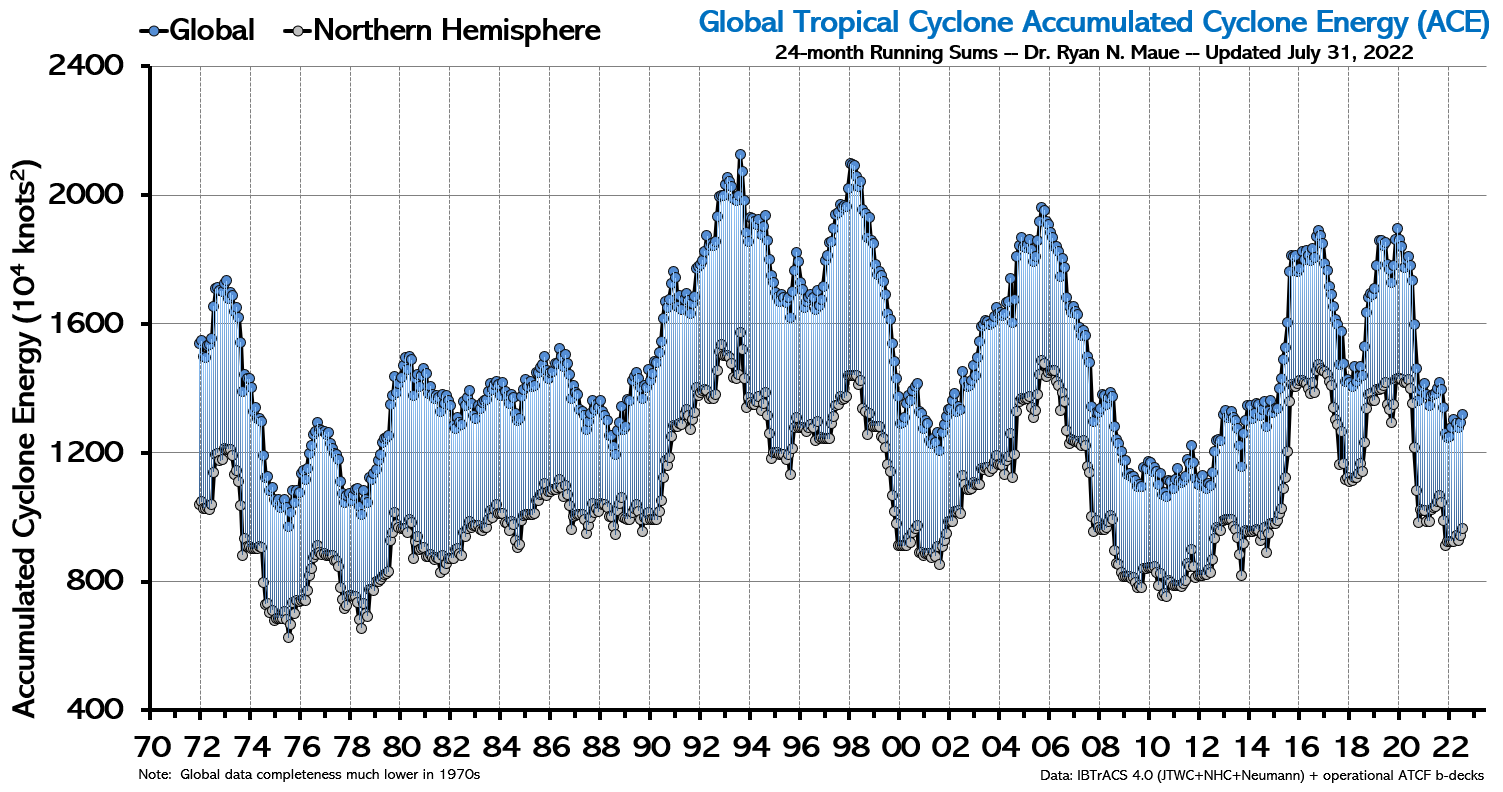
Regarding hurricane landfall numbers, the claim that they will increase in the future is similarly speculative. Schechter interviewed Dr. Kristen Corbosiero, a professor at the State University of New York in Albany, who acknowledged that data does not point to an increase in the number of future hurricanes. Yet, he and Schechter then pointed to a single study published in Science Advances which projects possible hurricane increases based on climate model projections. However, as Climate Realism has previously explained, here, here, and here, for instance, climate models seriously flawed, producing projections that have consistently failed to materialize in the real world.
Indeed, real world data on hurricane landfalls show that they have been much less frequent in recent decades than in the past. Climate at a Glance: Hurricanes explains that the U.S. “went more than a decade (2005 through 2017) without a major hurricane—a hurricane measuring Category 3 or higher—making landfall. That is the longest such period in recorded history.” Florida itself went 11 years without a single landfalling hurricane of any size until 2016.
Again, available data plotting major U.S. hurricane landfalls show no increasing trend. (See figure below)
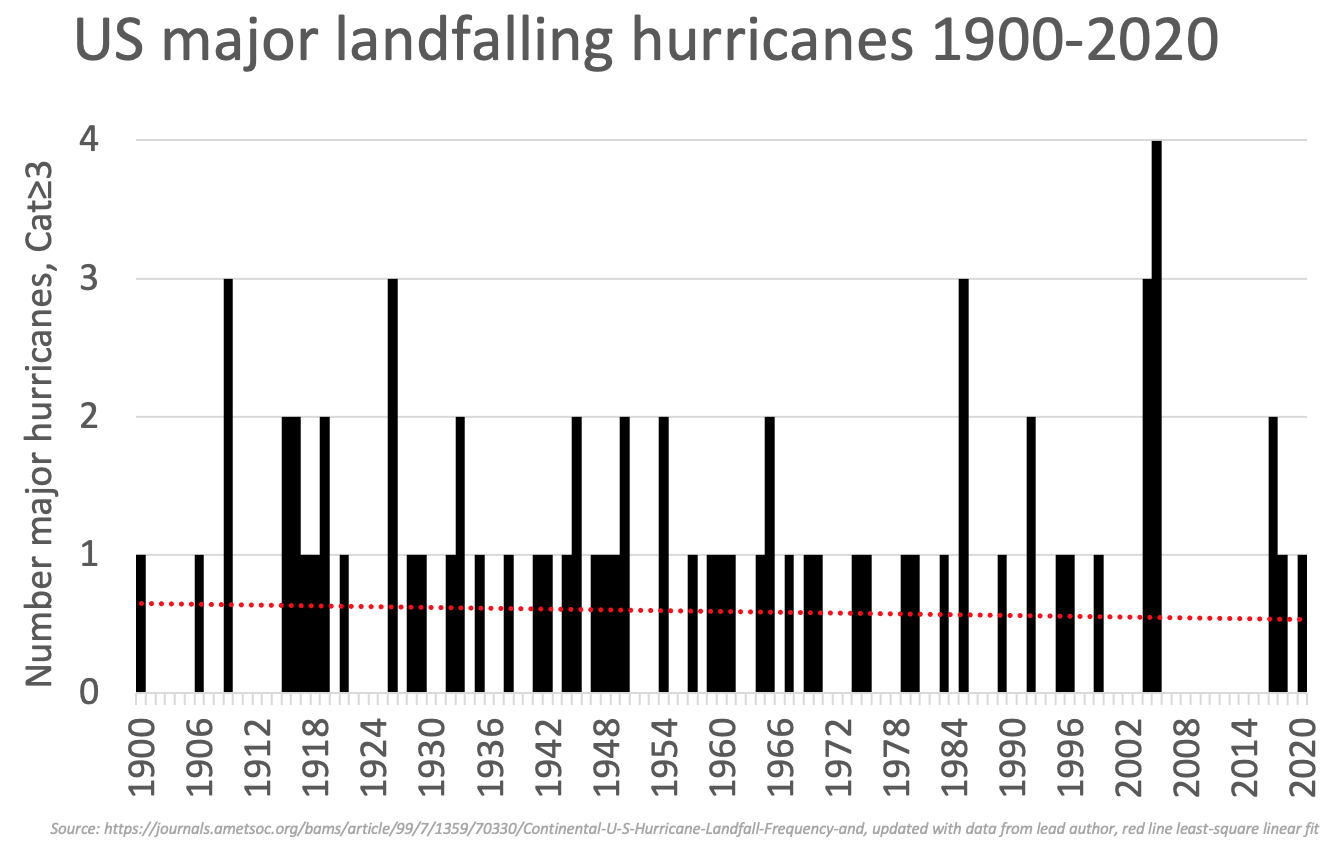
And the data suggests that the number of major hurricanes has modestly decreased globally, in recent decades. (See figure 3 below)
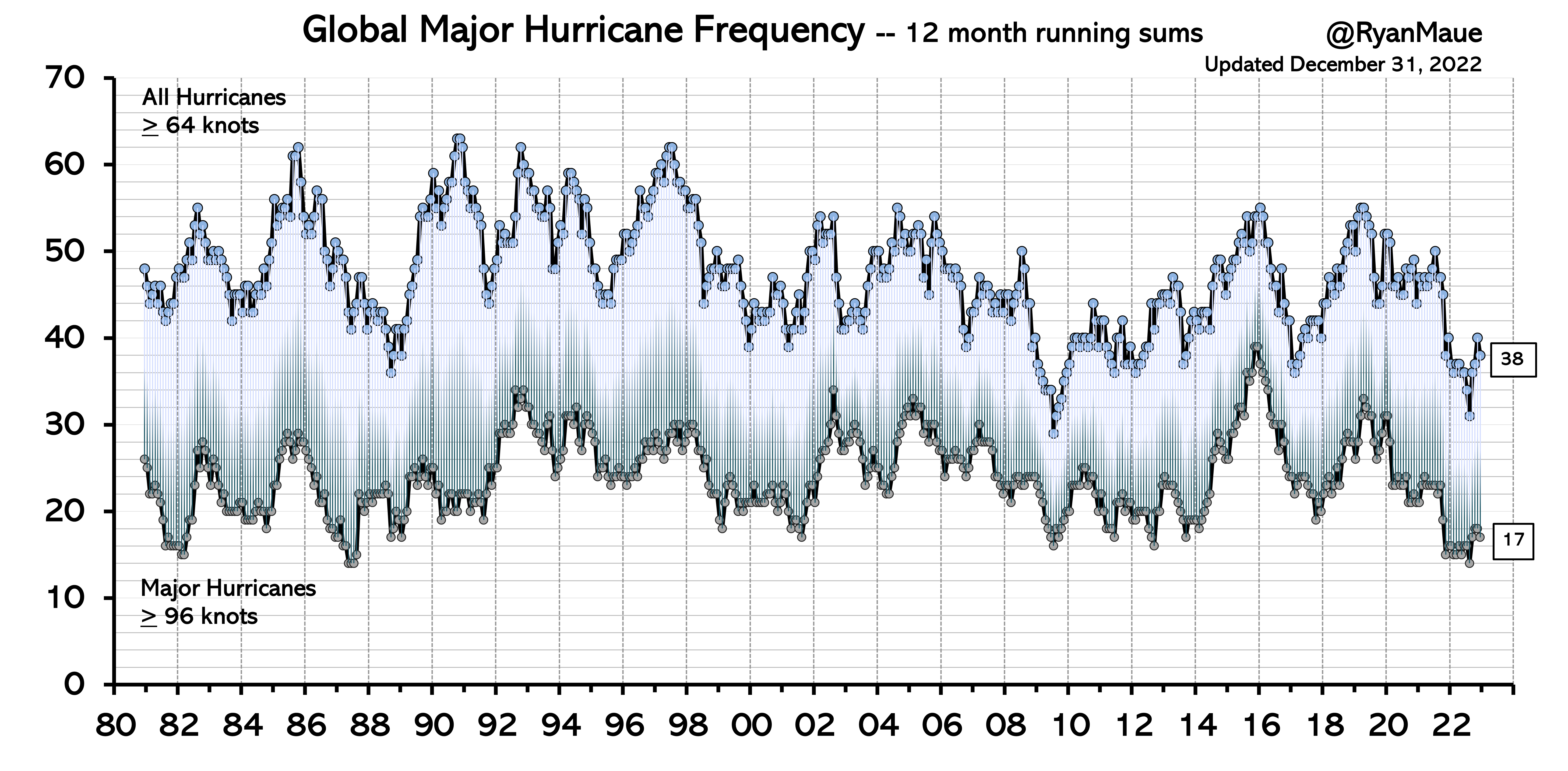
Climate Realism has debunked the false claims on hurricanes dozens of times, but it is worth pointing out once again that even the United Nations Intergovernmental Panel on Climate Change says there is only “low” confidence that any changes in tropical cyclone activity can be attributed to human influence, and admits that it has detected no trend of increasing hurricane numbers or intensity.
Neither the unalarming available data, nor the IPCC’s findings, prevent the media from using one of the most destructive natural events in the world—tropical cyclones—to stoke alarm about the future under modest warming. Coastal cities, like Philadelphia, are wise to prepare for hurricanes. However, despite Philly’s CBS News unsubstantiated claims, they need not fear such terrible weather events now any more than they have in the past.












